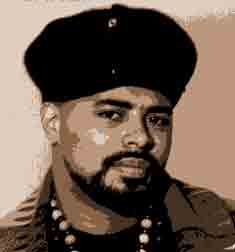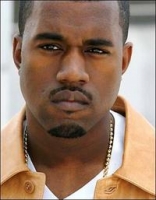When Sir Mix-A-Lot reached number one on the Billboard chart and won the 1993 Grammy Award for Best Solo Rap Performance with his song “Baby Got Back,” Seattle hip-hop was placed on the national and international stage in a way that few places outside of New York and California had been to that point. With this accomplishment came questions, and some assumptions, about who would be the next figure in Seattle hip-hop to receive this kind of mainstream recognition. Given the immense power of the Seattle music scene as a whole at that moment, few would have guessed that it would be nearly 20 years before someone from the 206 would approach Mix-A-Lot’s prop levels.
Fast forward to 2012, the release of the album The Heist by Macklemore and Ryan Lewis and the song “Thrift Shop.” In terms of popularity, “Thrift Shop” had the necessary universal thematic and sonic ingredients to compare favorably with “Baby Got Back’s” ability to make an impression on the mainstream. In terms of theme, “Thrift Shop” touched upon the increasingly popular concept of pushing back against designer clothing labels and supporting second hand stores like Goodwill and Value Village. Sound-wise a catchy, looping saxophone melody made the sound of “Thrift Shop” easy to bob your head to and remember.
http://www.youtube.com/watch?v=reTx5sqvVJ4
Almost exactly in between these two book-end Seattle songs, Eminem emerged from Detroit, Michigan. His wave of success in the early 2000s revived a discussion about the white MC that had been essentially tabled since Vanilla Ice’s brief run in the early 1990s. However, the key difference between Eminem and Vanilla Ice was that Eminem was recognized as a highly skilled rhymer.
This was certainly not the case with Vanilla Ice, even by 1990s standards. With millions of records sold, a handful of Grammy Awards and even an Oscar for the song “Lose Yourself” off the soundtrack from his film 8 Mile, talk began to swirl around Eminem’s place in hip-hop history. With this discussion came the inevitable comparisons to Elvis Presley.
After following in the footsteps of and borrowing liberally from pioneers like Chuck Berry and Little Richard, Elvis used movies and music to eventually become acknowledged by the mainstream as ‘the king’ of rock and roll. These comparisons were not lost on Eminem, who in his song “Without Me” noted:
I am the worst thing since Elvis Presley, to do Black Music so selfishly
and use it to get myself wealthy (Hey)
there’s a concept that works 20 million other white rappers emerge
http://www.youtube.com/watch?v=YVkUvmDQ3HY
From its beginnings in New York City hip-hop culture has always been much more multiracial than mainstream media gave it credit for. However, as a descendent of the legacy of privilege, power and oppression that led to the creation of hip-hop in the first place, the white male MC has always occupied a complex space in the culture. This is in large part due what Charles Aaron, in his article “What the White Boy Means When He Says Yo,” describes as black people’s suspicion of “whites who identify too closely with African-American culture, primarily because those same whites often want to boost the culture wholesale.”
Traditionally this suspicion has taken two forms; the previously mentioned “Elvis Syndrome” and what Aaron refers to as the “White Negro Problem,” a Norman Mailer idea from the 1960s, or culture appropriating ‘wiggers’ as they have been renamed in hip-hop terms.
Although it is true that in the time between Mix-A-Lot and Macklemore the Seattle hip-hop scene has produced a variety of impact players who reflect the diversity of the greater metro area, its the lily white image and population percentage of Seattle that brings an added element to this dynamic.
In some ways, questions around the likes of Eminem and Macklemore begin to center around the status of the subculture of white hip-hop. For example, in a larger historical context think of the cultural beginnings of the United States. On certain levels early American culture was essentially a subculture of British culture until at some point, U.S. culture matured and stood on its own. Similarly, hip-hop culture began as a subculture of African-American culture until, probably sometime in the late 1980s, it became a culture unto itself. Have we reached a point where white hip-hop culture has begun to stand on its own? If the answer is yes then what, if anything, does that mean?
In the 20 years since “Baby Got Back” was released, the song has been elevated to the rarified air of iconic pop cultural status. The white girl saying, “Oh my God Becky, look at her butt!” at the beginning is one of the most repeated lines in recent music history. The continued appeal and relevance of the song over the years is clear as it continues to make appearances in various form of popular media such as commercials for Burger King, Charmin Bathroom Tissue and Target as well as in movies like the Ben Affleck/Jennifer Lopez bomb Gigli, Scary Movie 4, and probably most famously danced to by Cameron Diaz in Charlie’s Angels.
http://www.youtube.com/watch?v=MCAvWd_53Xw
With the video for “Thrift Shop” at well over 400 million views on YouTube and the song and video nominated for all types of awards, this song appears well on its way down the path of “Baby Got Back.” But with this, how will the various media elements document the history of hip-hop in Seattle in the post “Thrift Shop” era?
The ‘newest, latest is the greatest thing ever’ crowd who frequently populate social media could certainly have the potential to reduce over 30 years of history to essentially ‘the Macklemore show.’ However, Macklemore himself does not come across as the type who would approve of this approach having thoroughly acknowledged the richness of this history in 2009’s “The Town.” In addition, the fact that the beginning scenes for the “Thrift Shop” video take place in front of the Northwest African American Museum is significant.
http://www.youtube.com/watch?v=QK8mJJJvaes
With songs like “Thrift Shop” and “Same Love,” Macklemore has risen to massive prop levels by going directly against two of the most well established norms in mainstream rap, namely bling and homophobia. While it took longer than some may have thought for the city’s next hip-hop superstar to arrive, Macklemore is a great representation to the world of what Seattle hip-hop was and is, though not the only one by far.
written by Dr Daudi Abe
Dr. Abe teaches at Hip-Hop Theory & Culture at Seattle Central Community College and is author of the book ‘6 N the Morning which chronicles West Coast Hip Hop History‘ Email: daudi.abe@seattlecolleges.edu










 Lemme cut to the chase, Kanye West is phony as was his contrived outburst when he rushed the stage to disrupt an acceptance speech from country singer Taylor Swift, during last night’s MTV Video Music Awards. It was a perfectly executed stunt which was designed to make national headlines (which it did). It was designed to become among the top trending topics in twitter and one of the hot key words in google (which it is). It was obviously designed to take away attention from issues at hand as Kanye’s outburst overshadowed many of the performances and presenters including the Michael Jackson tribute.
Lemme cut to the chase, Kanye West is phony as was his contrived outburst when he rushed the stage to disrupt an acceptance speech from country singer Taylor Swift, during last night’s MTV Video Music Awards. It was a perfectly executed stunt which was designed to make national headlines (which it did). It was designed to become among the top trending topics in twitter and one of the hot key words in google (which it is). It was obviously designed to take away attention from issues at hand as Kanye’s outburst overshadowed many of the performances and presenters including the Michael Jackson tribute.

 In the case of the townhall disruptions, we already know that many of these ‘grassroots’ , ‘spontaneous’ gatherings were actually orchestrated and seeded by lobbyists and corporations with the main groups being Freedomworks and Americans for Prosperity. Expensive PR firms were hired and a strategy was developed instructing people how to systematically disrupt townhalls. This included, spreading out amongst the crowd to give the appearance as being larger in numbers, rattling the sensibilities of a congressperson early on by shouting and aggressively challenging him/her and just generally being disruptive so that what got reported on the evening news was people shouting down the congressperson and not the finer points of healthcare.
In the case of the townhall disruptions, we already know that many of these ‘grassroots’ , ‘spontaneous’ gatherings were actually orchestrated and seeded by lobbyists and corporations with the main groups being Freedomworks and Americans for Prosperity. Expensive PR firms were hired and a strategy was developed instructing people how to systematically disrupt townhalls. This included, spreading out amongst the crowd to give the appearance as being larger in numbers, rattling the sensibilities of a congressperson early on by shouting and aggressively challenging him/her and just generally being disruptive so that what got reported on the evening news was people shouting down the congressperson and not the finer points of healthcare.


 R
R


